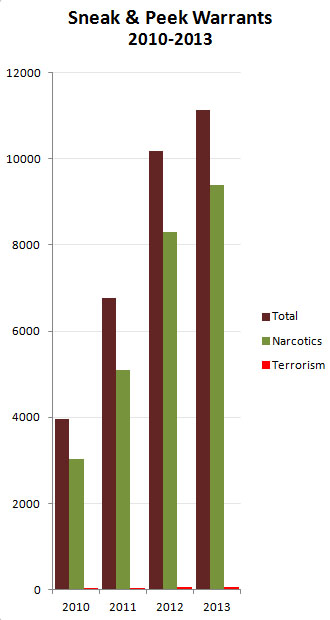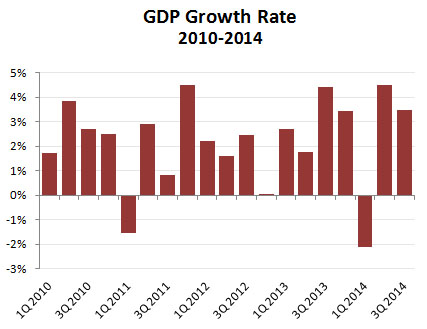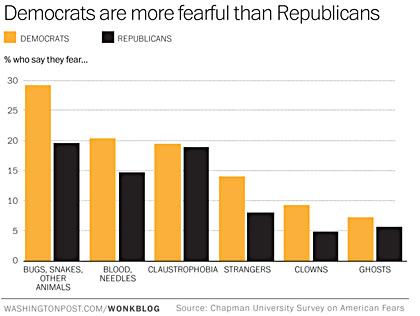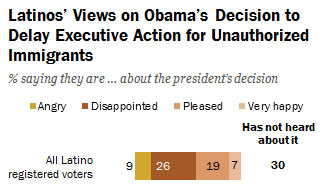Justin Wolfers shows us an intriguing example of confirmation bias today. It turns out that Leo, the New York Times election forecasting model, bases its forecasts on running hundreds of simulations and then taking an average. But readers who want to play around can go ahead and toss the dice themselves, generating their own random simulations. So what do readers do?
This is where confirmation bias comes in. If you’re convinced that the Republicans are going to win but your first two spins suggest a Democratic victory, you may feel deflated; perhaps you’ll spin again, in the hopes that you’ll finally get to see what a Republican victory looks like….85 percent of the time that your first two spins show a Democratic victory, you’ll keep spinning, perhaps hoping to see a Republican victory.
The same logic says that those who see the Democrats as likely to win are more likely to spin again after seeing the Republicans win in their first two spins, and once again, 85 percent of you do so.
Presumably readers are smart enough to know that these really are just random rolls of the dice that don’t mean anything. Only an average of hundreds of simulations is meaningful. And yet, many of us play the dice-rolling game anyway. Why?
Properly speaking, I’m not sure this is actually confirmation bias. I suspect that partisans just want to avoid a feeling of hopelessness. Sure, the official results will tell them that, say, Democrats have a 34 percent chance of holding the Senate, and that should be enough. But it’s not. Democratic partisans want to see the concrete possibility of a Democratic win. Rather than confirmation bias, this shows a human preference for examples vs. statistical forecasts.
Now, I’d expect that Democrats would do this more than Republicans. After all, if Leo says Republicans have a 66 percent chance of winning, that should make Republicans pretty happy. Why bother running even a single simulation that might spoil the good news? Unfortunately, Leo’s data doesn’t tell us if this happens, because it doesn’t know who’s a Democrat and who’s a Republican. But I’ll bet I’m right.



 attacking Democrat Ron Barber for…. supporting a budget compromise engineered by tea party darling Paul Ryan.
attacking Democrat Ron Barber for…. supporting a budget compromise engineered by tea party darling Paul Ryan. national security required that authority for these “sneak-and-peek” warrants be broadened.
national security required that authority for these “sneak-and-peek” warrants be broadened. Today’s economic news is fairly good. GDP in the third quarter
Today’s economic news is fairly good. GDP in the third quarter  strangers and outsiders than conservatives, but this survey suggests the opposite.
strangers and outsiders than conservatives, but this survey suggests the opposite. But the decline was modest, noticeable mostly by contrast with very high levels of support achieved in 2012, when Obama won reelection.
But the decline was modest, noticeable mostly by contrast with very high levels of support achieved in 2012, when Obama won reelection.


